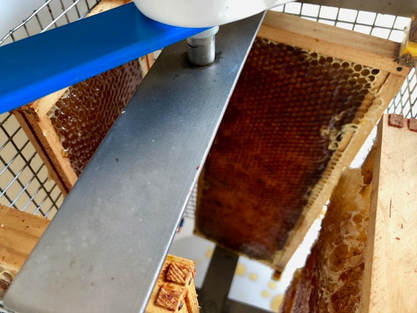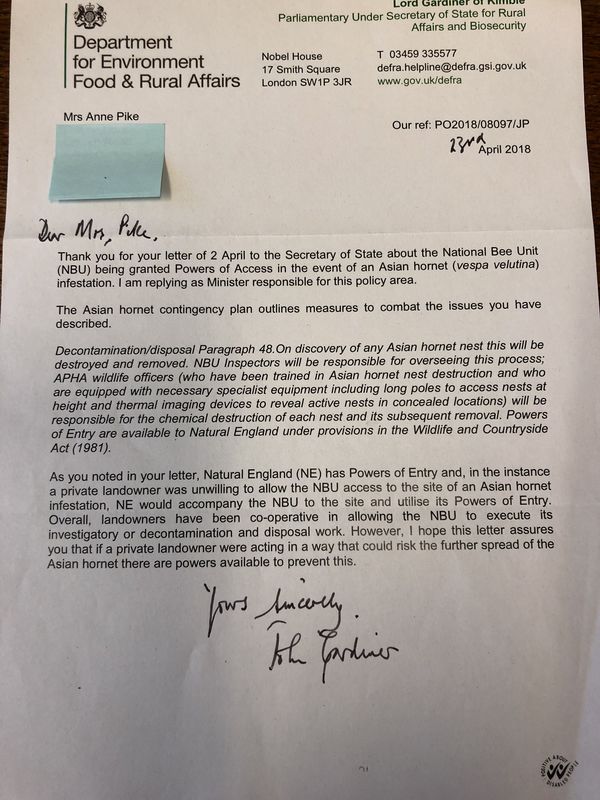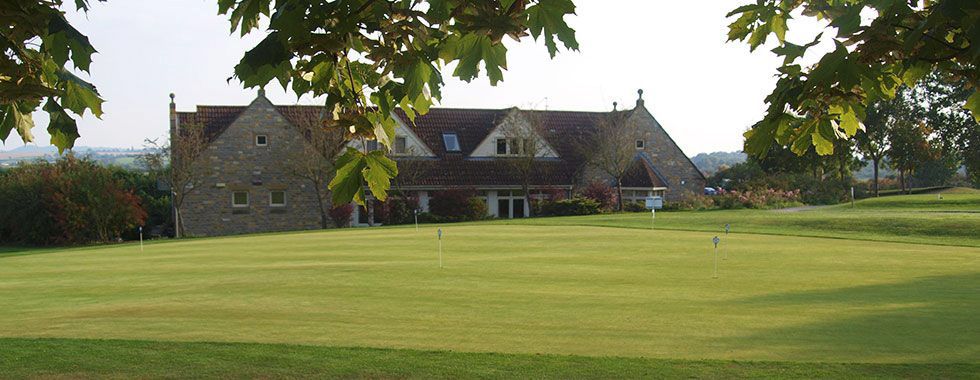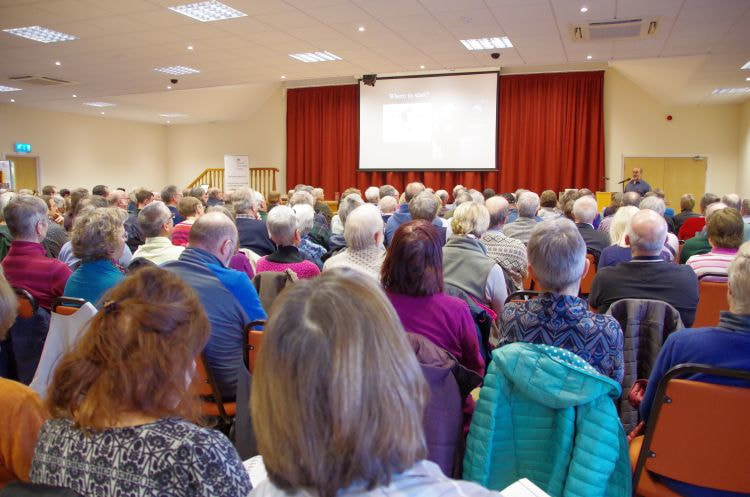|
Stewart Gould, vice chair of SBKA, reflects on a year which has seen an average honey harvest in Somerset totalling a very healthy 35-40 lb per colony while a very few beekeepers had a truly fabulous season with between 150 and 200 lb per colony. Perhaps better still, many of us have more colonies going into winter than at the start of the season.
"The beekeeping season of 2018 was coloured by the preceding year. 2017 started with a warm and dry spring which allowed the colonies of bees to build up their numbers very quickly. Unfortunately, the weather tuned cool and damp in June, meaning that all those bees couldn’t find enough food to feed all those extra mouths. I, for one, was feeding my bees through June of 2017. Honey is all about nectar flow, and conditions have to be just right – too much moisture or wind and the nectar will be washed out of the flowers, or the wind will blow blossom away: too little moisture and there won’t be a nectar flow. 2017 wasn’t a bad year weather wise, it was just not quite good enough at key points. In 2016 I harvested 350 lbs of honey from 7 production hives, but in 2017 I had only 35 lbs to show for my labours. As a consequence of 2017’s ‘iffy’ summer, many beekeepers were taking weakened or reduced numbers of colonies into the winter. Whereas I had run 9 colonies (7 production) through 2017, my numbers were reduced to a total of 6 as we headed for the cooler months. They weathered the winter well, and all was going well until Easter Monday, April 2nd, when out of the blue it snowed. The effect of this blast of cold air so early in the new season was that some colonies, already low on stores, succumbed to isolation starvation. They had food in the hives, but it was too cold for them to break the cluster and go to the other side of the hive for food. They chose warmth over nourishment, and paid the price. More beekeepers suffered late winter losses than they have for a long period of time. Going into the new 2018 season the situation was something of a ‘Curate’s egg’ – good in parts. Many beekeepers spent the summer building up their colony numbers and bolstering those which hadn’t fared too well during the winter, but those whose bees were strong at the end of 2017, and who managed to get them all through the blast of the ‘Beast from the East’ were off to a great start, especially if they keep their bees where there is a good spring harvest from oilseed rape, field beans and the like. The apple blossom was prolific this year too, and hawthorn played a significant role for a change. The ever faithful blackberry, which normally has a long flowering season, was affected by the prolonged dry spell, and flowered well, but quickly went to seed. They were, unusually, ripening and good to pick in mid July. All in all, a mixed bag of blessings. Nobody had as bad a year as 2017, and those whose bees were recovering managed to produce slightly better than average crops, but those whose bees were good to go from the start of 2018, had a bumper year. I have heard reports of well over 100 lbs of honey from single hives, from many beekeepers, and even new beekeepers in their first full year have had a reasonable crop – oh! And the bees all seem to be going into this coming winter in much better shape." You may have seen an article on the BBKA website about a Defra minister praising beekeepers for raising the alarm about Asian hornets. And we want you to know that SBKA is among those ‘alarm-raising’ beekeepers!
Earlier in the year we wrote to Secretary of State Michael Gove flagging up our concerns about the National Bee Unit’s lack of statutory powers to go onto private land if Asian hornets are suspected and access is denied by the landowner. Lord Gardiner, the Parliamentary Under Secretary of State responsible for Rural Affairs and Biosecurity, replied and gave assurances that Natural England (which has this power) would accompany bee inspectors if such a circumstance arose. Incidentally, we wrote to all Somerset’s MPs ahead of Asian Hornet week last month to seek their support. Later in the year we will write to them again with a round-up of our season. Join us for our Annual Lunch on Sunday, October 14 at Long Sutton Golf club, Long Sutton, TA10 9JU.
The cost is £14.00 for two courses - beekeeping chat is free! The lunch is a carvery and a choice of puddings. A vegetarian option is available on the day - please mention when booking. Tea or coffee can be purchased individually after the meal. Get your booking, along with a cheque made payable to Somerset Beekeepers Association, to Suzy Perkins by Monday, October 8: Tengore House, Tengore Lane, Langport, Somerset, TA10 9JL; Tel: 01458 250 095; Email: [email protected] Our 2019 annual Lecture Day will be held from 9.00am to 5.00pm on Saturday, February 16 at Edgar Hall, 8 Cary Court, Somerton Business Park, Somerton TA11 6SB
Tickets: Tickets cost £5 and include light refreshments but not lunch. They are available from Divisional Secretaries or by cheque from SBKA Treasurer Mrs C. Kennedy, Allways, West Shepton, Shepton Mallet, BA4 5UH And online (plus 83p booking fee) through Eventbrite Programme for the day: 9.00am Coffee 9.30am Opening by Ken Tredgett, SBKA President 9.35am Paulo Mielgo Vita (Europe) Ltd; Varroa 10.40am Prof. Stephen Martin; Deformed wing virus update 11.40am Coffee 12.10pm Derek Mitchell; Old saws – myths and physics of hives 1.10pm Lunch Simon Jones RBI and his team will be available to help with your queries about bee diseases 2.20pm Thanks and presentations 2.30pm Clare Densley; Romancing the Honey Bee 3.30pm Raffle and tea 4.00pm Prof. Stephen Martin; Asian Hornets 5.00pm CLOSE Prof Stephen Martin, Chair in Social Entomology in the School of Environmental and Life Sciences at Salford University, Manchester. Prior to that he spent 12 years working at Sheffield University, seven years with the National Bee Unit and seven years in Japan conducting research into hornets. Stephen is best known for his work on the Varroa mite and its association with viruses, especially the Deformed Wing Virus. His team of researchers at Salford, funded in part by beekeepers, are using the very latest molecular methods to read the genetic code of the DWV virus. The aim is to understand why some honey bee colonies have become naturally tolerant to Varroa and see if this information can provide beekeepers with a long-term solution to the problem. Derek Mitchell is a researcher into the differences in heat transfer between man made and natural honey bee nests at Leeds University School of Mechanical Engineering. Derek’s fascination with honey bees over the last seven years, is that the deeper you delve into how they exploit the physics of heat, the more impressive the feats of honey bees becomes. Clare Densley, Buckfast Abbey's Head Beekeeper, has been keeping bees since 1992 and spent two years as a seasonal bee inspector for Devon. “Romancing the Honey bee” examines the role of Br Adam as a celebrity beekeeper and compares his work and philosophy with the current beekeeping practices at the Abbey. It rambles on to look at why honey bees have become celebrities of the insect world and how this is reflected in mythology, art and religion. Then we look at science and how research has informed us about how honey bees really function and keep strong. I am interested in our emotional and commercial relationship with bees. The final section throws open to discussion how we might work with the bees to resolve some of the problems we have presented them with over the last century. Paulo Mielgo, Vita Bee Health’s technical manager, has beekeeping in his blood! His surname is similar to the Spanish word for honey (miel) and his father has managed 700 hives in Argentina. After gaining a degree from a veterinary college in Argentina, Paulo worked in many countries including Italy and South America and previously worked for Vita’s South American partner, Apilab. His current role involves working with researchers and universities to help develop new honey bee health and nutrition products. Vita researches, develops, manufacturers and markets a range of honeybee health treatments |
Archives
March 2024
Categories
All
|
Somerset Beekeepers Association Charity © 2021 Registered CIO Charity 1206483
Affiliated to the British Beekeepers Association
Click here to view our Privacy Policy
Affiliated to the British Beekeepers Association
Click here to view our Privacy Policy





 RSS Feed
RSS Feed
